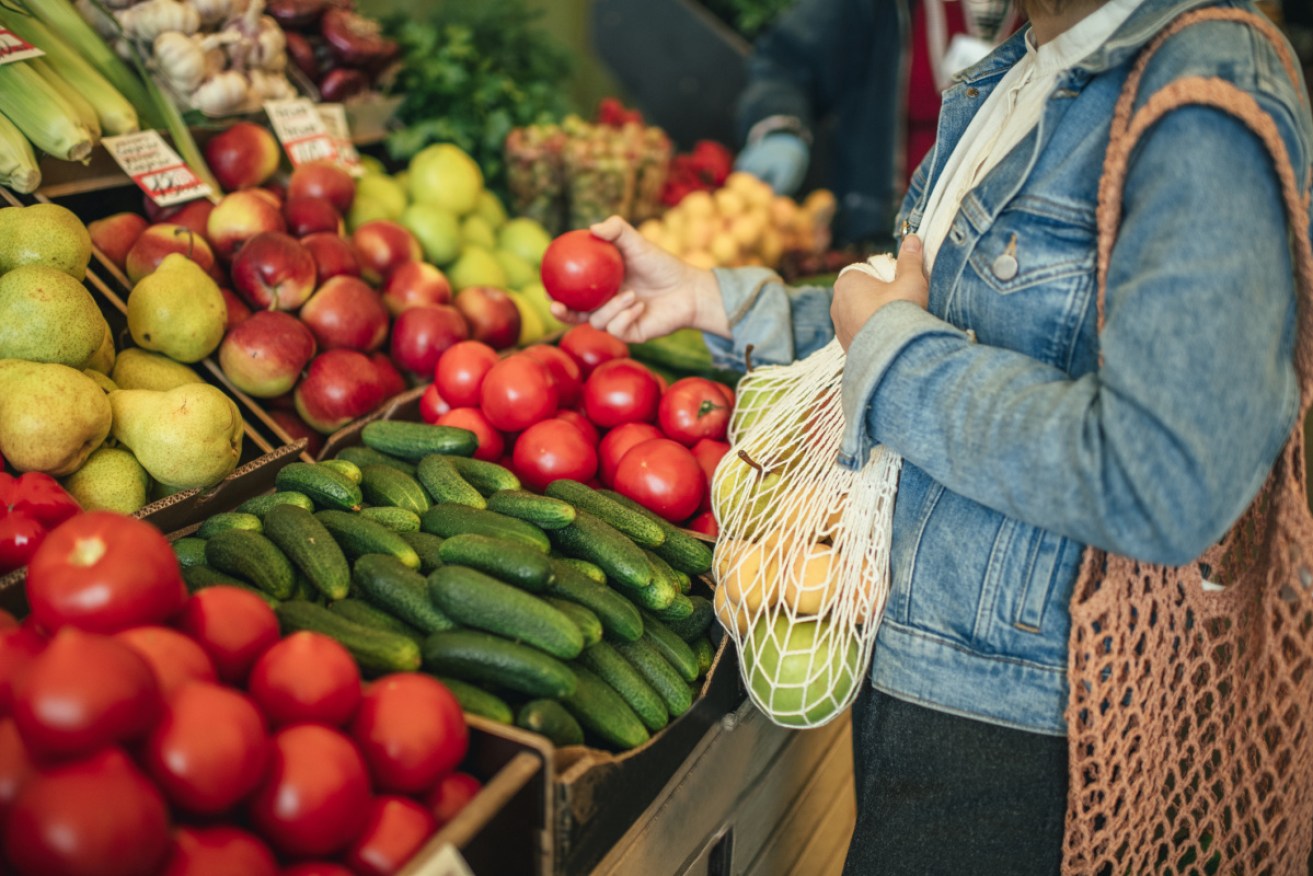Food and climate change: How to make healthy and sustainable food choices


Cutting down on processed foods is key to a healthy and sustainable diet. Photo: Getty
Food choices are important not only for our health, but for our planet.
The latest United Nations’ Intergovernmental Panel for Climate Change (IPCC) report highlighted the role our food system plays in accelerating climate change.
The industrial food production system, which includes transport and packaging, accounts for a staggering 37 per cent of total greenhouse gas emissions, the report showed.
Food waste is a major contributor to emissions, with a staggering one-third of the food produced globally each year going to waste.
When it comes to making food choices that are both healthy and sustainable, there are a few key principles that are “consistently identified in guidelines and evidence”, Deakin University food and nutrition expert Mark Lawrence said.
They are:
1. Select “minimally processed” foods
“Food processing is OK, but when it becomes highly processed there’s evidence that it’s associated with health risks,” Professor Lawrence said.
The world is facing a “tsunami” of obesity and diet-related disease, a recent study by The George Institute for Global Health found.
A growing number of people are eating processed packaged foods and the ramifications for human health are disastrous, the study found.
More than two-thirds – 67 per cent – of Australian adults are overweight and obese – and the likelihood of this increases with age.
Processed foods also tend to use huge amounts of water and energy, resulting in a large carbon footprint.
2. Try to eat a more plant-based diet
“That doesn’t mean necessarily to go vegan,” Professor Lawrence said. Instead, focus on reducing the amount of meat and animal food products you consume.
Food animals are contributing to the dangerous rise of antibiotic resistance, with recent Australian research showing they consume greater quantities of antibiotics than humans.
3. Reduce food waste
“An extraordinary amount of food is wasted between the farm, what goes into our mouth, and what we leave on our plate and throw out,” Professor Lawrence said.
This creates a “double problem”, he says. The Earth’s finite resources are used to produce food, but when it is discarded uneaten in landfill it can produce greenhouse gas emissions as it decomposes.
With so much food going to waste, there’s a terrible irony in the fact that millions of people in Australia and around the world are being left hungry.
One in five Australians have experienced food insecurity, Foodbank’s 2019 Hunger Report revealed.
4. Consume less
This final point is perhaps the most important one, Professor Lawrence said.
“The majority of Australians over-consume. We need to eat to health needs,” he said.
“When we overeat that’s ‘metabolic waste’, because it’s excess in demand and has metabolic consequences.”
Personal choices only go so far
Personal food choices can help, but ultimately, systemic change is required to address climate change, University of Sydney food systems expert Alana Mann said.
The current drought emergency show extreme weather events are “already impacting food supplies, especially in rural areas,” Dr Mann said, with Australia forced to import wheat for the first time since 2007.
“Personal food choices can only make so much difference in a monopolised food system,” Dr Mann said.
We need to look beyond our plates to ask who supplies our food, how, and for whose benefit.”
Dr Mann criticised dogmatic vegans who insist that everyone must immediately forgo meat as “problematic” and ultimately unhelpful.
“If that’s your choice, and you can manage your diet and still get enough nutrition, fantastic. But you should be very careful about imposing that on other people because it’s also often a cultural preference,” she said.
“You need to think big picture about the whole world, because if you tell that to people in countries with food shortages – where their only protein is an egg or chicken – it’s very silly to expect widespread adoption of those practices.”
Instead, Dr Mann encouraged people to support farmers by buying local and seasonal produce.
This can include modest amounts of ethically produced meat.
“Eating meat one to three times a week is about all we need,” Dr Mann said.
“If we do that and eat the right quality meat that’s ethically farmed by farmers that are looking after the soil, that’s fantastic.”








